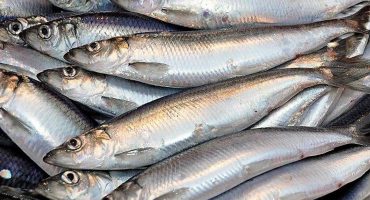
Boost for Scottish mackerel as demand from Japan soars
Scotland’s mackerel processing sector has been boosted by a surge in sales to Japan, with demand anticipated to grow further.
According to figures obtained by the Scottish Pelagic Processors Association, export sales of frozen whole Scottish mackerel to Japan have soared from 1,074 tonnes in 2020 to 15,316 tonnes in 2023, with a value of around £25m. Even more notably, there has been a significant increase in market share, with Norwegian mackerel traditionally accounting for around 90% of the Japanese import market, but which dropped last year to around 70%, with Scottish mackerel rising to take about 20% share.
Robert Duthie, chairman of the Scottish Pelagic Processors’ Association, welcomed the sales boost, which he said was a direct reflection of the premium quality of Scottish caught fish, which has been increasingly recognised by Japanese buyers in recent years.
He said: “We are delighted that the superb quality of Scottish caught mackerel is being recognised by discerning buyers in Japan, and as we build relationships with key customers, we anticipate that market growth will continue.
“North-east Atlantic mackerel is in its best condition in terms of quality when the shoals enter UK northern waters in October, which lie close to the main mackerel processing centres in the north-east of Scotland and Shetland. This means Scottish boats can land their fish a very short time after catching, ensuring the best possible quality.”
Scottish sales to Japan have been further boosted by the lower import tariff for UK mackerel compared to Norwegian fish. Tariffs on Scottish mackerel will be completely phased out by 2033, providing future additional advantage.
The buoyant Japanese sales have come at a time when Scotland’s major pelagic processors are embarking upon significant investment programmes to modernise infrastructure and increase processing and storage capacity, as well as reduce energy costs and carbon footprint. In Peterhead, Denholm Seafoods’ development of a major new £30m mackerel and herring processing facility and cold-store upgrade is nearing completion and will be ready in time for the summer herring season. The development will significantly increase freezing and cold storage capacity, as well as increase efficiency, product quality and automation, enabling further expansion into Far East markets.
Lunar Freezing has made a major investment in a new protein recovery plant and is also upgrading its processing facilities with plans for future expansion. Also in Peterhead, Northbay Pelagic is expanding its cold storage facilities to handle the increasing volumes of fish being processed.
Meanwhile, in Shetland, Pelagia Shetland is constructing a new cold store on land reclaimed by Lerwick Port Authority to increase capacity.
Much of this investment has been spurred by new economic link regulations making it mandatory for Scottish vessels to land more of their catches into Scotland. In recent years, the Scottish pelagic fleet has also been significantly investing in new vessels to optimise catch quality and enhance efficiency.
Robert Duthie said: “Scottish caught and processed mackerel is a high quality, delicious and nutritious product and we are working hard to forge new and trusted relationships with customers all over the world. With significant new investment by both the processing and catching sectors, Scottish mackerel looks set to become a real export success story.”



